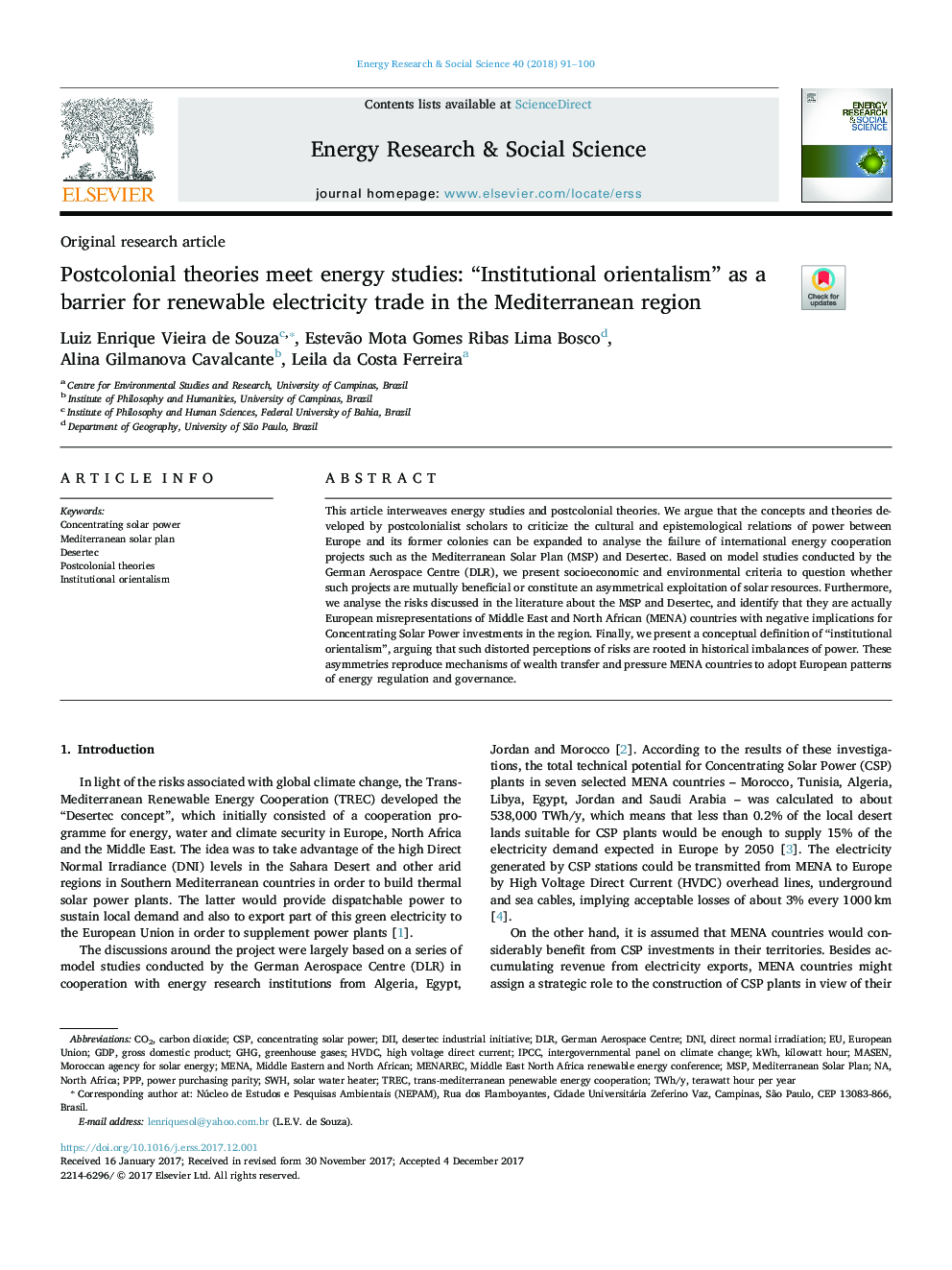| Article ID | Journal | Published Year | Pages | File Type |
|---|---|---|---|---|
| 6557494 | Energy Research & Social Science | 2018 | 10 Pages |
Abstract
This article interweaves energy studies and postcolonial theories. We argue that the concepts and theories developed by postcolonialist scholars to criticize the cultural and epistemological relations of power between Europe and its former colonies can be expanded to analyse the failure of international energy cooperation projects such as the Mediterranean Solar Plan (MSP) and Desertec. Based on model studies conducted by the German Aerospace Centre (DLR), we present socioeconomic and environmental criteria to question whether such projects are mutually beneficial or constitute an asymmetrical exploitation of solar resources. Furthermore, we analyse the risks discussed in the literature about the MSP and Desertec, and identify that they are actually European misrepresentations of Middle East and North African (MENA) countries with negative implications for Concentrating Solar Power investments in the region. Finally, we present a conceptual definition of “institutional orientalism”, arguing that such distorted perceptions of risks are rooted in historical imbalances of power. These asymmetries reproduce mechanisms of wealth transfer and pressure MENA countries to adopt European patterns of energy regulation and governance.
Keywords
PPPSWHMediterranean Solar PlanDesertecHVDCMENAMSPDLRGHGCSPIPCCDiITRECSolar water heaterNorth AfricaEuropean Uniondirect normal irradiationGross domestic productGDPhigh voltage direct currentCarbon dioxideDNIConcentrating solar powerIntergovernmental Panel on Climate ChangeCO2kilowatt hourkWhGreenhouse gases
Related Topics
Physical Sciences and Engineering
Energy
Energy (General)
Authors
Luiz Enrique Vieira de Souza, Estevão Mota Gomes Ribas Lima Bosco, Alina Gilmanova Cavalcante, Leila da Costa Ferreira,
